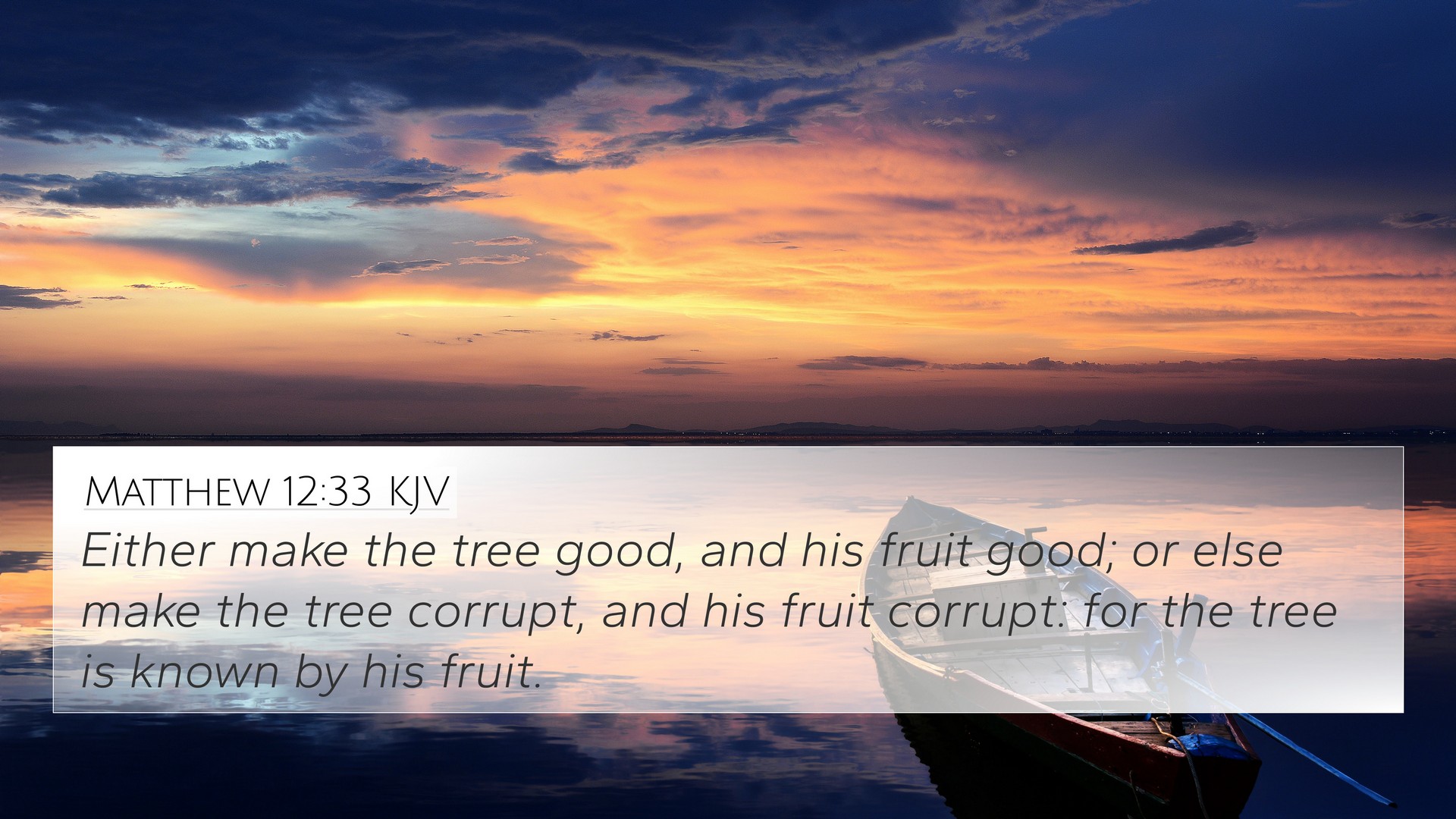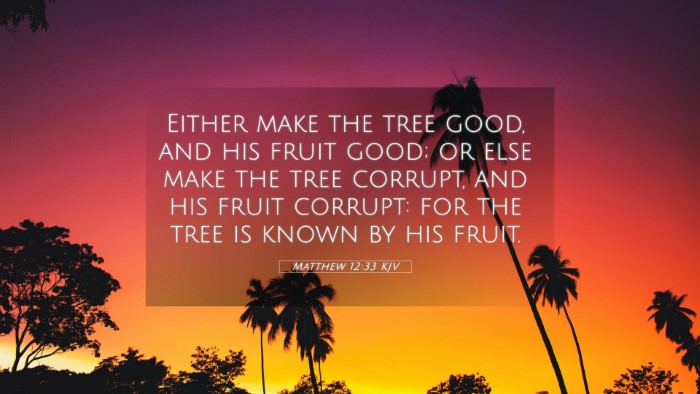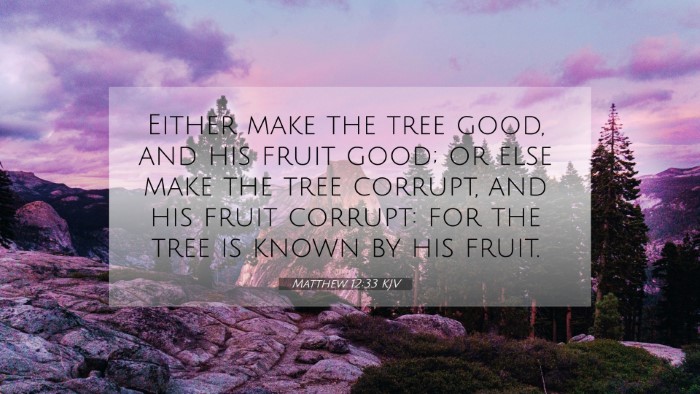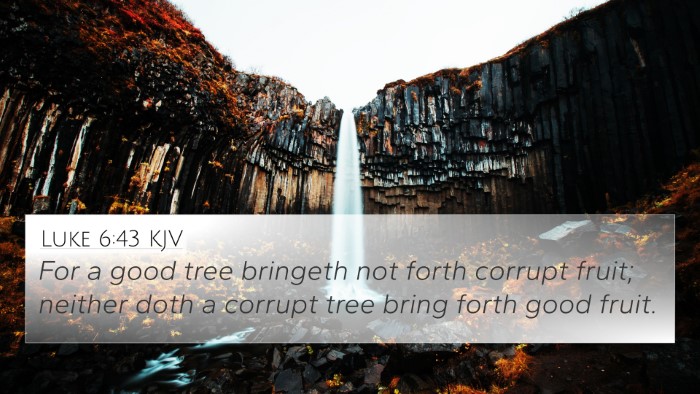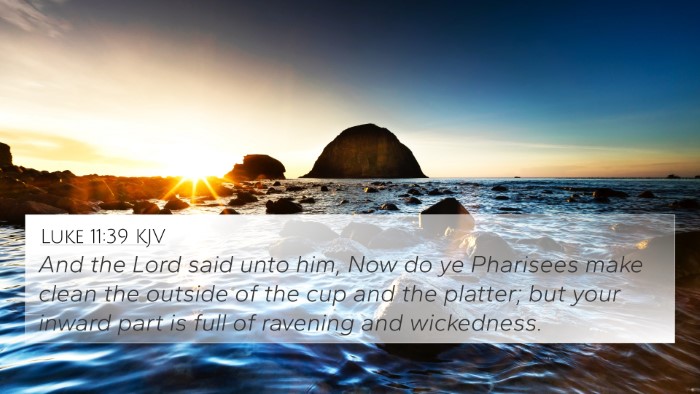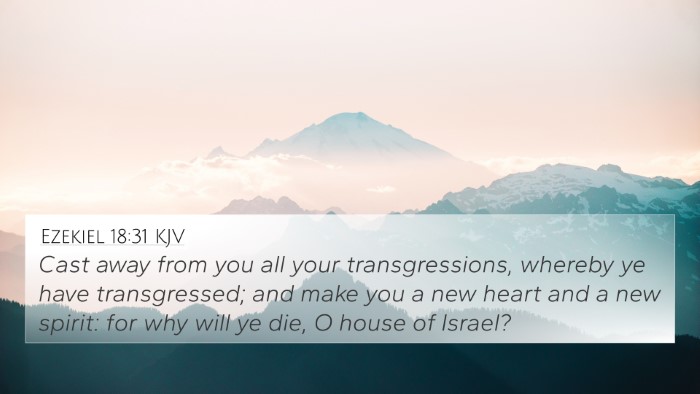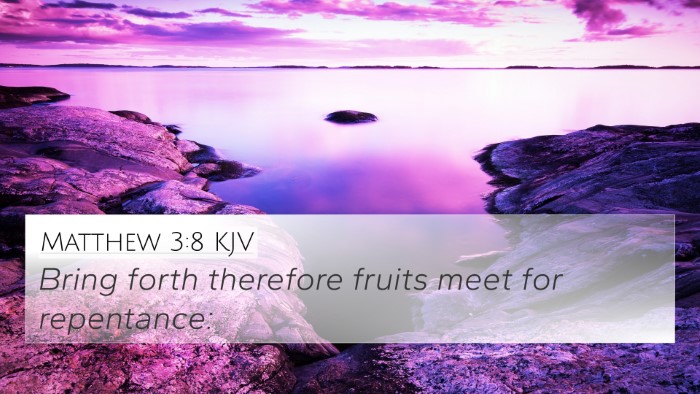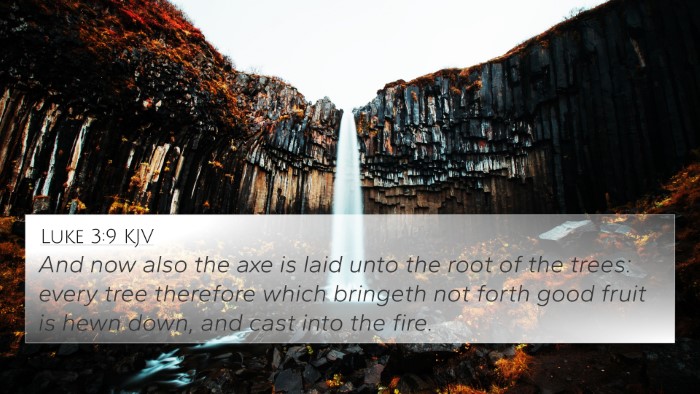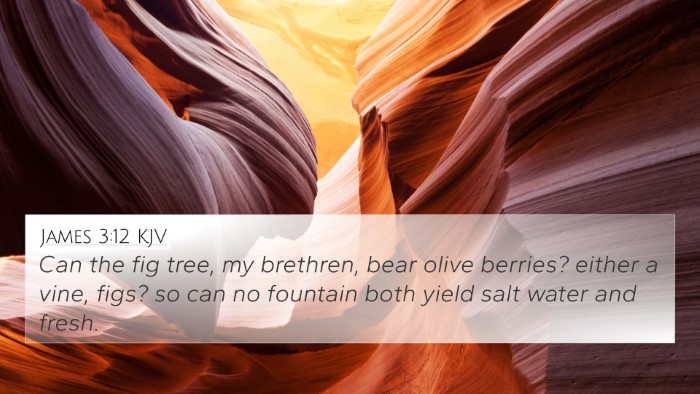Understanding Matthew 12:33
Matthew 12:33 states: "Either make the tree good, and his fruit good; or else make the tree corrupt, and his fruit corrupt: for the tree is known by his fruit." This verse emphasizes the intrinsic relationship between a person's nature and their actions, much like a tree is recognized by its fruit. Below we encapsulate insights from esteemed public domain commentaries to enhance our understanding of this profound verse.
Verse Meaning
This verse provides a stark contrast between good and evil, suggesting that the state of a tree — representing a person's heart — is evidenced by the fruit it bears, symbolizing the actions and results of one’s character.
Commentary Insights
-
Matthew Henry:
Henry emphasizes that good actions stem from a good heart. A person's deeds reflect not only their character but also their moral standing before God. He explains that a truly righteous person cannot produce wickedness, nor can an evil person produce good fruits.
-
Albert Barnes:
Barnes interprets the verse as a profound truth that judgment upon a person's moral character can be based solely on their actions. He comments on the analogy that like trees will produce like fruit, urging believers to consider the evidential nature of their behavior towards their spiritual integrity.
-
Adam Clarke:
Clarke reflects on the importance of the source of one’s actions. He points out that the root of a tree signifies the heart; thus, a good heart produces beneficial deeds while a corrupt heart brings forth that which is harmful and detrimental to oneself and others.
Bible Cross-References
This verse connects with several other scriptures that reinforce the themes of morality and the relationship between inner character and outward actions:
- Luke 6:43-45 - "For a good tree bringeth not forth corrupt fruit; neither doth a corrupt tree bring forth good fruit."
- James 3:12 - "Can the fig tree, my brethren, bear olive berries? either a vine, figs? so can no fountain both yield salt water and fresh."
- Galatians 5:22-23 - "But the fruit of the Spirit is love, joy, peace, longsuffering, gentleness, goodness, faith, meekness, temperance..."
- Matthew 7:17-20 - "Even so every good tree bringeth forth good fruit; but a corrupt tree bringeth forth evil fruit..."
- Romans 7:4 - "Wherefore, my brethren, ye also are become dead to the law by the body of Christ; that ye should be married to another, even to him who is raised from the dead, that we should bring forth fruit unto God."
- 1 John 2:29 - "If ye know that he is righteous, ye know that every one that doeth righteousness is born of him."
- Matthew 3:10 - "And now also the axe is laid unto the root of the trees: therefore every tree which bringeth not forth good fruit is hewn down, and cast into the fire."
Thematic Connections
This scripture is part of a broader biblical theme that underscores the importance of one's character and actions. The thematic connections highlight how understanding one verse can lead to deeper insights into the nature of sin, righteousness, and bearing good fruit in one's life. By examining these connections, believers can cultivate a more profound ethical and moral framework.
Cross-Referencing in Biblical Study
The study of this verse through cross-references is vital for developing a comprehensive understanding of biblical teachings regarding morality and righteousness. Utilizing tools such as a Bible concordance and Bible cross-reference guide can significantly enhance the study experience, allowing for a greater grasp of how different scriptures interlink.
How to Use Bible Cross-References
For those looking to explore gold threads in biblical texts:
- Identify Themes: Begin with a theme or concept, such as righteousness, and find verses addressing it.
- Compare Translations: Situate the verse across different translations to see varied insights.
- Use a Systematic Approach: Apply a specific Bible cross-reference system as you study.
Conclusion
In conclusion, Matthew 12:33 encompasses a profound truth regarding the nature of a person's heart reflected in their deeds. Understanding this verse, combined with cross-referencing other related scriptures, deepens our knowledge of biblical teachings and underscores the importance of living a life that bears good fruit.
